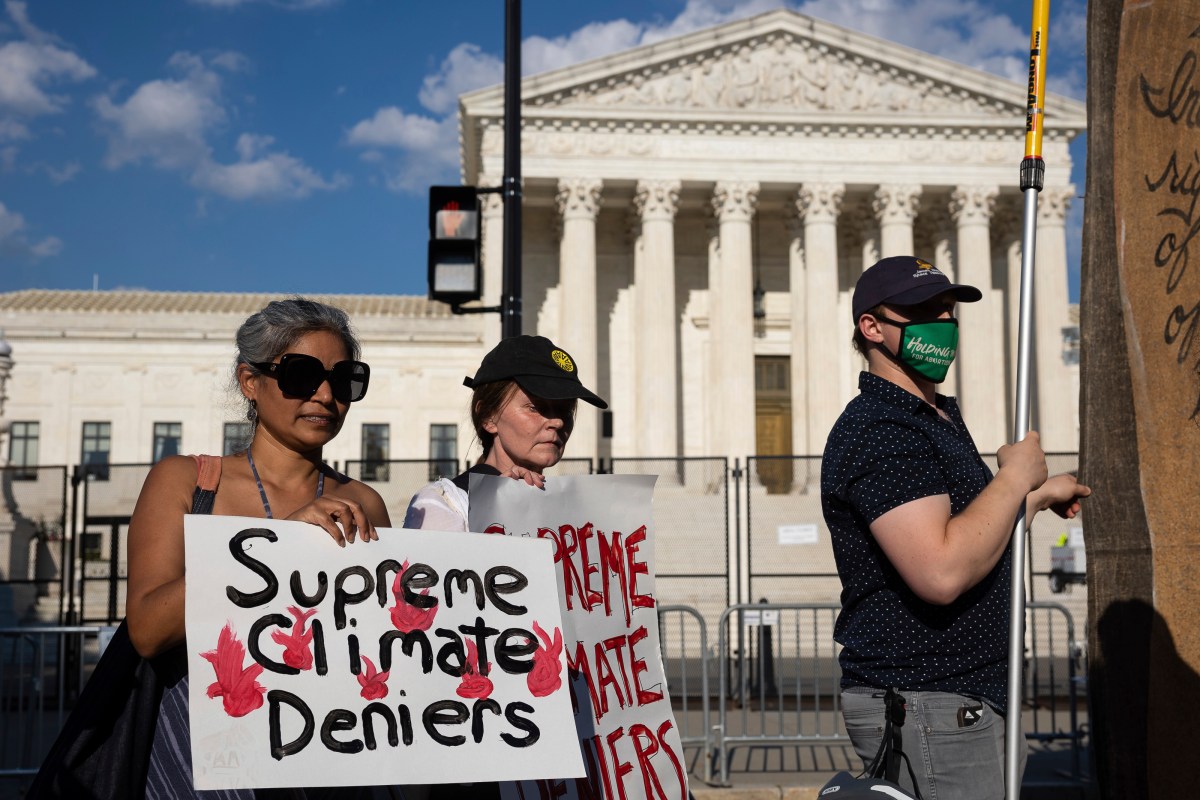In June, the conservative Supreme Court supermajority issued rulings on everything from abortion to guns and regulation. Most of the country disagrees strongly with these rulings. Public fury is palpable. But the anger is accompanied by a sense that a fraying country’s institutions are unsound.
This Court is destroying the uneasy détente between a legislative branch rigged in favor of rural white conservatives via gerrymandering, Senate apportionment, and the Electoral College, and a judiciary that has often protected and expanded the rights of the marginalized.
The Roberts Court has imperiled America’s unity. The country’s center-left majority is disenfranchised and under assault from the likes of Samuel Alito. Something has to give.
The large, productive populations of blue states like California and New York—which famously give far more to the national treasury than they get back—chafe under a system that affords far more clout to the citizens of Idaho and Wyoming. The voting majority that won seven of the last eight presidential popular votes and that constitutes 70 percent of the GDP will throw off the yoke of a conservative minority. Most Americans below the age of 40 are progressive—well to the left of today’s median Democrat—and will not buckle under the imposition of a white Christian nationalist agenda by an aging conservative minority.
They know that the Supreme Court has lost its moral authority. Republicans have won the popular vote in a presidential election only once in 30 years, yet Republican presidents have nominated most of the Court’s justices. No Democratic president has chosen a chief justice since Harry Truman in 1946. The last Republican president entered office having lost by nearly 3 million votes even with the aid of a foreign dictatorship, whose help he begged for on the campaign trail. One of those justices was stolen outright by Mitch McConnell under pretenses of it being an election year, only to see the Senate confirm another justice while votes were being cast in the next cycle. The Senate that confirmed those justices is absurdly skewed in favor of small, white, rural conservative states, such that Senate Democrats represent 43 million more voters yet are locked in a 50-50 tie. And the Senate’s skew will only become more blatantly unjust and unsustainable.
Of course, the Court has issued infamous rulings in the past, from Plessy and Dred Scott and Korematsu to Citizens United, Heller, and Bush v. Gore. Many argue that the Court has hindered progressive causes. Even so, for the past half century, the Court has reliably expanded social protections in landmark cases on racial integration, women’s bodily autonomy, LGBTQ rights, and more.
Whether or not one agrees that the Fourteenth Amendment’s due process and equal protection clauses affirm rights to privacy, abortion, racial integration, and marriage equality, and whether or not one agrees that federal agencies should have the leeway to interpret vague legislative mandates, these judicial choices have helped to maintain the national peace. Because of these decisions, the broad center-left majority of the country has accepted the otherwise intolerable reality of minority rule.
Minority rule is stark today due to the nation’s much-remarked polarization of liberal versus conservative, white versus nonwhite, young versus old, and rural versus urban. But even when partisanship was muddier, the overrepresentation of conservative voters meant that the Democratic Party had to rely on the votes of many conservative, corporate-friendly, and even outright bigoted legislators like Strom Thurmond, once a Democrat. On paper, the Democratic congressional majorities during Barack Obama’s first two years in office could have enshrined the right to an abortion under federal law; in reality, they had to depend on votes from senators in Louisiana, Arkansas, Nebraska, and Montana, who would never have agreed to it. Today, the party’s ambitions are bound by the whims of a senator from West Virginia and his mercurial counterpart from Arizona.
Conservatives note that these biases are written into the Constitution. That is true—but it is no moral justification. The Framers created the Senate and the Electoral College to bring small states on board with the larger national project and to temper what they worried would be the passions of the electorate. They feared demagogues—yet ironically, their solution enabled the rise of one. Their concessions to slave states failed to prevent the Civil War. They got many things wrong and could not foresee or prevent the rise of political parties. Crucially, they also expected future generations to change the Constitution frequently, yet it has barely been amended in almost a century.
Most functional modern democracies do not use America’s creaky presidential system, which is structurally unstable, and those that do tend to also be unstable. If the United States functioned like most modern democracies, with a parliament and proportional representation, the majority’s will would hold sway more frequently. But the structures that prevent even the most modest legislation from passing make constitutional changes impossible.
If Democrats want to save the country, they must commit to major institutional reforms, from bypassing the Electoral College to ending gerrymandering to expanding the Court. The Senate, above all, requires revolutionary changes. The District of Columbia, Puerto Rico, Guam, the Virgin Islands, and others should be granted statehood (if they want it), and not just because the colonized and the descendants of the enslaved deserve at least the same rights and representation of the colonizers and the descendants of the slavers. They should be granted statehood with the unapologetic goal of giving America’s center-left majority the voice it deserves in the Senate.
With an ill-gotten conservative lock on the Supreme Court and a rigged Senate, blue states will be increasingly forced to go it alone to protect their citizens. If the Court neuters federal regulations, blue states must have their own. Already they’re becoming abortion-safe zones in the crazy quilt that is America after Dobbs.
Absent major structural reforms to American democracy and the undoing of the hostile takeover of the Supreme Court by reactionary forces, the country faces a dismal, unraveling future.



